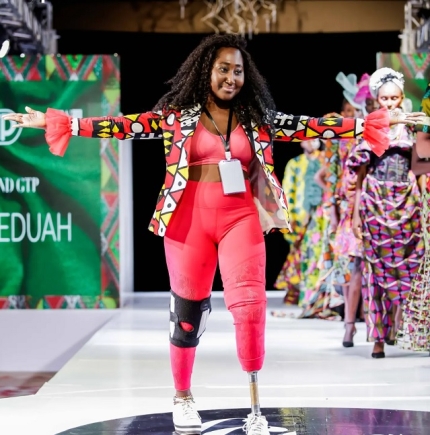
Born with a challenge and a will - Bridget Wireduah strives for excellence in fashion design
When Bridget Wireduah Addo was a four-month fetus in her mother’s womb, a wardrobe fell on her mother’s stomach, partially shifting her into her mother’s cervix.
As her body parts developed in the cervix instead of the womb, she was trapped, unable to move around.
Her legs and other cells and organs therefore did not get enough nutrients to fully develop. Her legs got sore and started rotting.
In an interview with The Mirror in Accra last Wednesday, Miss Addo said the abnormalities was only detected by doctors seven months into her mother’s pregnancy and a procedure was done to move the fetus back into the womb but some harm had already been done.
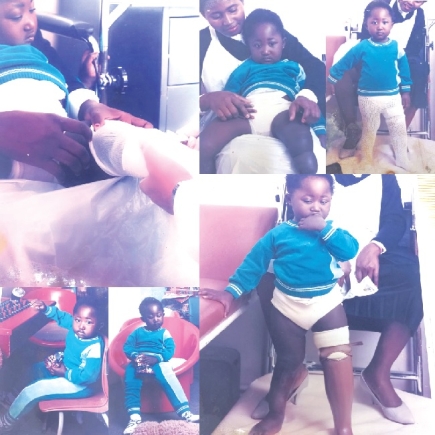
For fear of losing the pregnancy, Miss Addo was shortly after the detection delivered through an emergency Caesarean section when her mother was just seven months pregnant.
She said she spent her first two months in the Neonatal Intensive Care Unit (NICU) battling lung infection, sepsis (requiring her blood to be drained and replaced through transfusion twice), asthma, anaemia, severe jaundice and pain.
In her first week of life, Miss Addo underwent two surgeries to address the harm to her leg. By God’s grace, she survived.
However, due to the extent of damage, only one leg could be saved, and even that one was severely scarred from the thigh to the leg.
According to Miss Addo, she had to rely on prosthetics before learning to walk and developed muscle pain and osteoarthritis as a result of her condition.
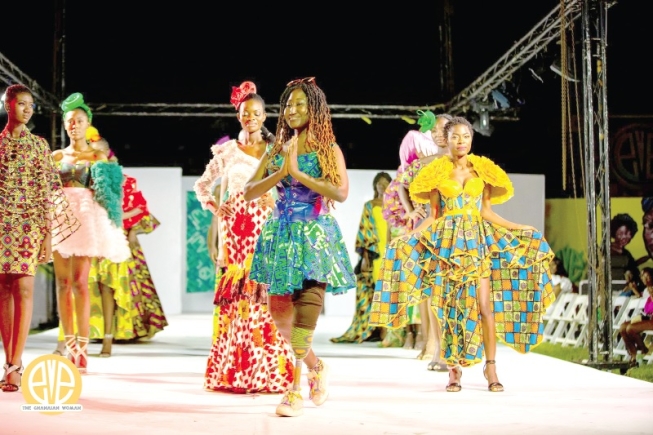
Despite these early challenges, Miss Addo seems to have shown remarkable resilience, and determination to fulfil her life’s destiny and make an impact in the world through fashion.
She is a Fashion Design graduate of the Joyce Ababio College of Creative Design (JACCD) and Bluecrest University College.
The fashion designer now boasts over 12 years of experience in the industry. She is the owner of Bri Wireduah Studio, a fashion and special clothing design house located at the Lapaz-Race Course, Accra.
Adding to her achievements, Miss Addo has styled many prominent figures including, TV hostess, Gifty Anti.
She has won many awards and engages in disability advocacy, mentorship, training and volunteer work. Read on as we delve into her life.
Early childhood
The Mirror (TM): What is your background?
Bridet Wireduah Addo (BWA): I was born in the United Kingdom (UK) to my amazing parents, Mrs Gladys Addo and the late Mr Morris Addo. I started my education in Hounslow Town, UK.
When I was 10 or so, my family decided to move back to Ghana, and that’s when things started to get interesting. I continued my schooling at Soul Clinic International School and later went on to St. Mary’s Senior High School.
TM: How was life in the UK compared to Ghana?
BWA: You know; I have been fortunate. Life in the UK was pretty comfortable—my parents were doing well, and as a UK citizen, I had access to support from the government which helped a lot with my condition. But moving to Ghana was far better, the sun, nature, and the people helped me heal better, and even my lungs and asthma got better.
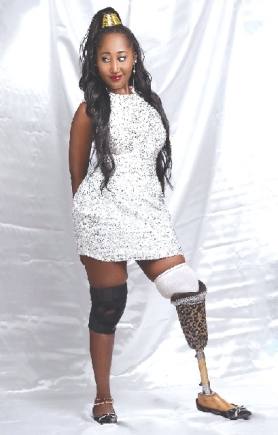
TM: What is it like living with prosthetics?
BWA: I began using prosthetics at 10 months old then I learned to walk at 11 months and first went to a school for special needs which was very helpful. Later, I moved to mainstream education.
The thing with prosthetics is, you cannot just have one and stick with it forever. Your needs change as you grow taller and gain weight, especially depending on the type of amputation.
I have gone through about three different prosthetics so far. And yes, they are really expensive! But I am fortunate because, as a UK citizen, I used to receive subsidies and a lot of my healthcare services for free through health insurance.
Adjusting to new technology and making sure my prosthetics worked well was a big challenge plus the price! Even the parts can cost more than 200 dollars.
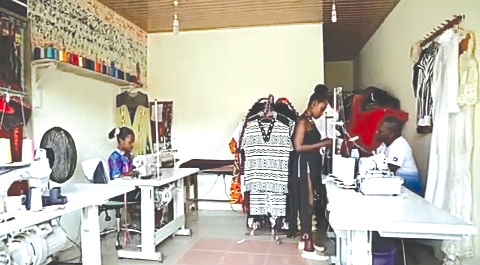
TM: Were you ever bullied in school because of your condition?
BWA: Shw3, me? Haha, you dare not! Anyone who tried to mess with me would get it right back. You know, in basic and primary, my school was mostly white people, so the bullying I faced was more about my skin colour—that is racism, not because I was an amputee. But honestly, they were too scared to bully me because they knew I would always fight back!
TM: How is your health now?
BWA: I live a normal life although I have to take supplements, muscle relaxants, medication for osteoarthritis, which developed recently, check my diet and maintain my weight just so there is no need for another prosthetic.
I am still able to do the things I love; swim, read, exercise and hang out with friends and family all the time. I have another prosthetic leg which is waterproof so that is what I use mostly to swim.
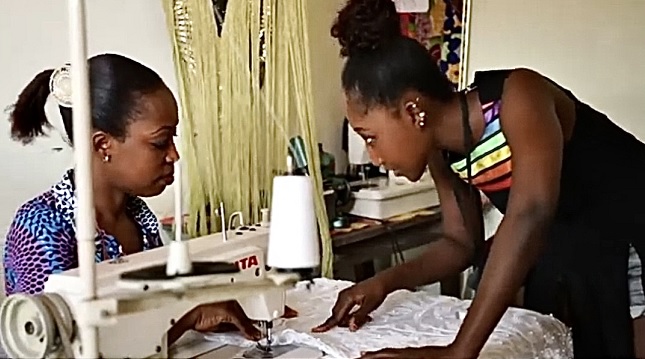
TM: How did your journey into fashion start?
BWA: Well, I got my passion for fashion from my mother and started my career in 2012, though I have been sewing since high school.
After SHS, I left a nursing programme in the UK to follow my passion for fashion and returned to Ghana. A key early job was sewing all the funeral clothes for my family in 2005.
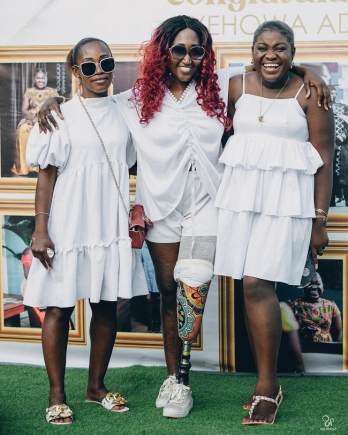
- Miss Wiredua with some friends
This experience opened many doors, and now I have clients from Europe and America. I love creating stylish and functional clothing for people with disabilities
TM: What are your future goals?
BWA: I've won over four awards and showcased my designs on several runways in the country. The awards include Designer of the Year in 2017, Best Women’s Wear Designer at the Fashion Ghana Awards in 2018 and a disability entrepreneur award in 2021.
My proudest achievement is designing clothes for people of all backgrounds, making them feel great in their own skin. There is definitely more in store.
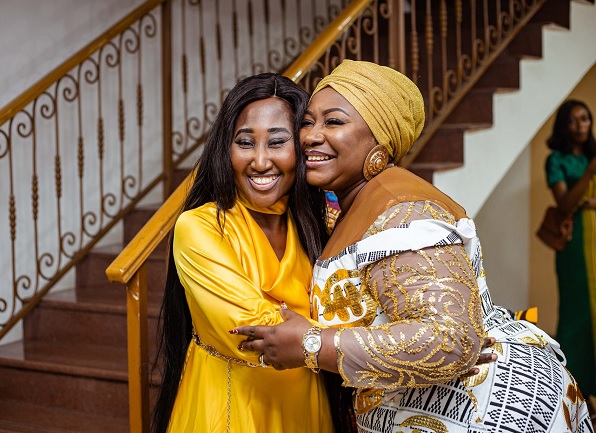
TM: Any suggestions?
BWA: I think the government should spend more on health care for people with disabilities. In business, trainees should try to learn on their own and not just wait to be spoon-fed. They should also believe in their capabilities.
